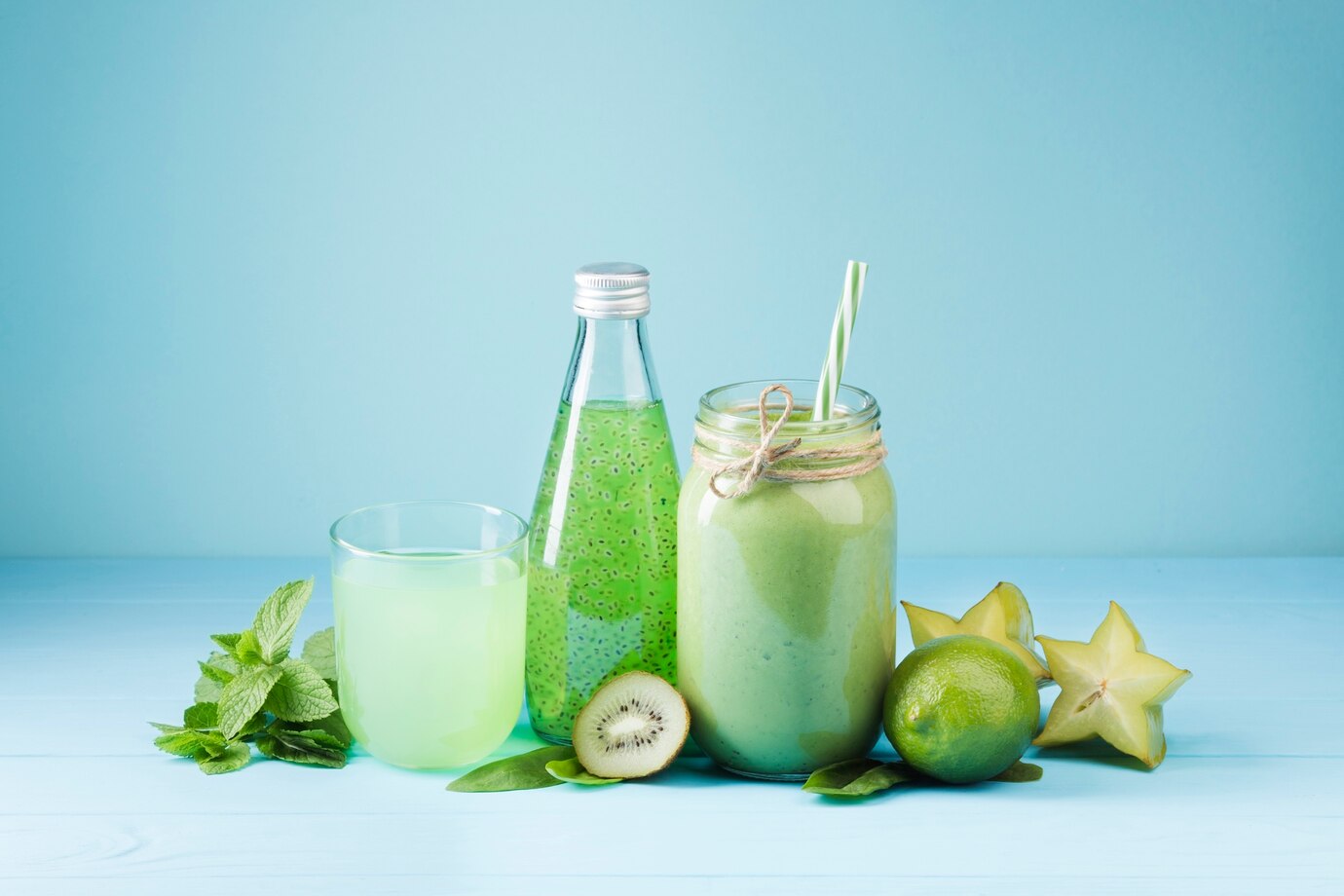When it comes to boosting your wellness, both kombucha and smoothies have earned their places as health powerhouses. Packed with nutrients and unique benefits, they offer different ways to support your body and mind. But how do you choose the best option for your wellness routine? Let’s dive into the pros and cons of kombucha and smoothies to help you decide which one fits your health goals.
What Is Kombucha?
Kombucha is a fermented tea made by combining tea, sugar, and a symbiotic culture of bacteria and yeast (SCOBY). During fermentation, the sugar is broken down, and the tea becomes slightly effervescent, tangy, and packed with probiotics.
Benefits of Kombucha:
- Gut Health: Kombucha is rich in probiotics, which promote a healthy gut microbiome and improve digestion.
- Antioxidants: Made from tea, it contains antioxidants that help fight free radicals in the body.
- Low in Calories: With its low-calorie count, kombucha is an excellent alternative to sugary beverages.
- Energy Boost: Thanks to its small amount of caffeine and natural B vitamins, it provides a gentle energy lift.
Drawbacks of Kombucha:
- Potential Added Sugars: Some store-bought kombuchas contain added sugars, so check the label.
- Acquired Taste: The tangy flavor might not appeal to everyone.
- Carbonation Sensitivity: For some, the carbonation can cause bloating or discomfort.
What Are Smoothies?
Smoothies are blended drinks made from fruits, vegetables, and other ingredients like yogurt, protein powders, and nut butters. They can range from simple fruit blends to nutrient-dense meal replacements.
Benefits of Smoothies:
- Customizable Nutrition: You can tailor smoothies to include specific vitamins, minerals, and macronutrients.
- Filling and Satisfying: The fiber from fruits and vegetables keeps you fuller for longer.
- Versatile Ingredients: From leafy greens to superfood powders, the options are endless.
- Hydration: Many smoothies include water, coconut water, or almond milk, contributing to daily hydration.
Drawbacks of Smoothies:
- Caloric Density: Without careful ingredient choices, smoothies can quickly become high in calories.
- Short Shelf Life: Smoothies are best consumed immediately, as they can separate or lose nutrients over time.
- Sugar Content: Even natural sugars from fruits can add up, so balance is key.
Which One Fits Your Wellness Goals?
For Gut Health:
If your primary goal is improving digestion, kombucha might be the better choice. Its probiotics directly target the gut, promoting a healthy microbiome and aiding in nutrient absorption.
For Energy and Hydration:
Smoothies take the lead here. They’re versatile and can include ingredients like bananas, spinach, and chia seeds for sustained energy. Adding coconut water or almond milk also ensures hydration.
For Weight Management:
Both can support weight management, but it depends on how you use them. Kombucha’s low-calorie content makes it a guilt-free option for curbing cravings, while smoothies can serve as a satisfying meal replacement when balanced with protein and healthy fats.
For Antioxidant Support:
Both options shine in this category. Kombucha’s tea base provides antioxidants, while smoothies allow you to incorporate superfoods like berries, kale, and matcha for an antioxidant-packed drink.
How to Make the Most of Kombucha and Smoothies
Optimizing Kombucha:
- Choose brands with minimal added sugars and natural ingredients.
- Limit intake to one serving per day to avoid excess acidity.
- Pair kombucha with meals to support digestion.
Optimizing Smoothies:
- Use a mix of fruits and vegetables to balance natural sugars.
- Add a source of protein (e.g., Greek yogurt, protein powder) and healthy fats (e.g., almond butter, avocado) for a complete meal.
- Experiment with superfoods like chia seeds, flaxseeds, or spirulina to boost nutrient content.
The Verdict
When it comes to kombucha vs. smoothies, the winner depends on your specific wellness needs. Kombucha is an excellent choice for gut health and a refreshing, low-calorie beverage. Smoothies, on the other hand, offer a versatile and nutrient-dense option that can be tailored to almost any health goal. For the ultimate wellness boost, consider incorporating both into your routine—kombucha as a daily digestive aid and smoothies as a nourishing meal or snack.
Embrace the benefits of both, and let your health thrive!

